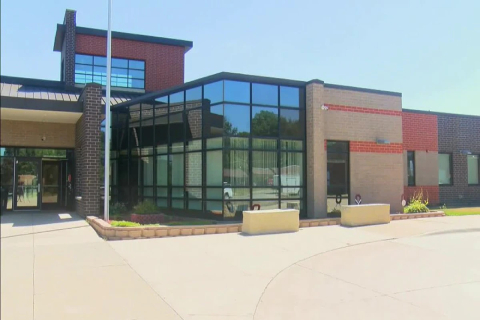OSKALOOSA — In Mahaska County, more than three children compete for every available childcare slot, a shortage so severe it has branded the community a “childcare desert” for at least 15 years. The lack of affordable, accessible childcare not only strains families but also holds back Iowa’s workforce and local economic growth.
Parents in Mahaska County face a startling reality: 2,770 children under the age of 9 depend on just 861 licensed childcare spaces. That imbalance, 3.2 children for every slot, puts Mahaska well beyond the threshold for a childcare desert, which is defined as more than three children per licensed space.
“Families often have to start looking for childcare more than a year, sometimes even two years, in advance of the child being born because the waiting lists are so long,” said Arthur Zacharjasz, director of occupational, employee, and public health. “That reality forces parents into difficult choices, sometimes deciding whether one parent should step away from work entirely because the cost of childcare outweighs their income.”
The shortage has ripple effects far beyond the family home. Zacharjasz noted that young families may not even consider moving into a community without adequate childcare. “For rural areas especially, where we’re trying to attract young families and sustain an aging population, the equation is pretty clear: we need healthcare, we need strong schools, and we need reliable childcare,” he said. “Without those three pillars, it’s hard to grow.”
In Iowa, 73% of families with children under age 6 have all adults working, one of the highest rates in the nation. The state ranks ninth overall in labor force participation, but the lack of childcare is a primary reason parents are forced out of the workforce.
“When parents can’t access childcare, workforce participation drops. That creates a tighter labor market and ultimately reduces productivity across Iowa’s economy,” said Oskaloosa City Manager Shawn Metcalf.
Childcare centers also face staffing shortages that prevent them from serving at full capacity. By law, centers must follow strict child-to-staff ratios. Even when facilities have space, they cannot admit more children without more employees.
“If every mother of young children had access to affordable, quality childcare, more than 150,000 additional people could enter Iowa’s workforce,” Metcalf said, citing data from the Common Sense Institute. “The demand is there. The problem is access, quality, and cost.”
Iowa’s childcare deficit mirrors Mahaska’s challenges. The state has more than half a million children under age 12 but only about 177,000 licensed slots, leaving a shortfall of 330,000 spaces.
The cost of care adds another burden for families. The average cost of infant care in Iowa is 18.4% higher than in-state tuition at a four-year public university. National guidelines suggest childcare is affordable if it consumes no more than 7% of family income. In Iowa, only about one in 10 families can find care within that range.
Meanwhile, the workforce caring for children is underpaid. Childcare workers are the third lowest-paid occupation in Iowa, with starting wages averaging $10.89 per hour, which is $3.90 below the living wage for a single adult. As a result, 30% of childcare workers rely on Medicaid, and 40% depend on at least one public assistance program.
“Childcare is not babysitting. It’s a necessity for Iowa to thrive and build the economy,” said Jeannine Laughlin, president of the Iowa Association for the Education of Young Children, in remarks referenced in Mahaska’s recent childcare assessment.
Beyond workforce and economic implications, local educators stress that childcare is essential to a child’s long-term success. Research shows that 90% of brain development occurs in the first 2,000 days of life—roughly the first five and a half years. The neural connections made during that time shape learning, problem-solving, social-emotional health, and future well-being.
“Early childhood education is one of the great equalizers in shaping future success,” said Oskaloosa Schools Superintendent Mike Fisher. “When children gain early skills in reading, numeracy, and social development, they thrive. The benefits show up across their lives—in employability, mental and physical health, and even in reduced involvement with the criminal justice system.”
Fisher added that Oskaloosa’s efforts are rooted in community partnerships that have already made childcare a priority. “The next step is expanding access to high-quality options so every child has the chance to benefit,” he said. “It really does take a village, and in Oskaloosa we take seriously the idea that we all share responsibility for raising the next generation.”




